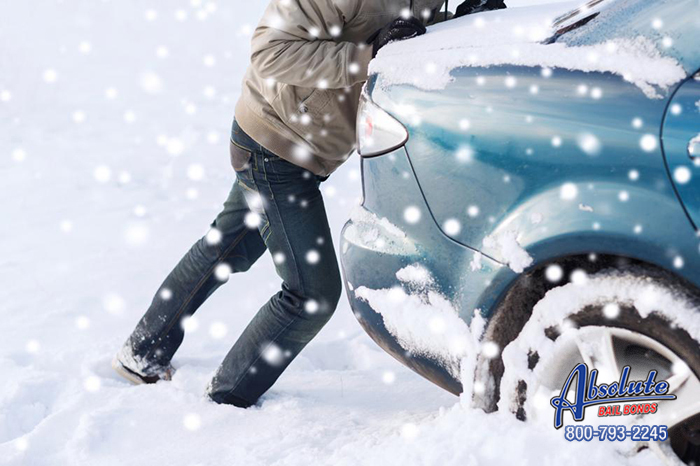While it may feel like fall just started, winter has arrived in parts of California. Soon enough, the entire state will be dealing with a chill in the air and storm clouds gathering on the horizon. Rains, snow, and ice will begin to affect the roads, creating dangerous driving conditions. When this happens, drivers need to proceed with caution, or risk being in a fender bender.
As road conditions worsen, drivers are supposed to adjust their driving accordingly. By doing so, they decrease the chances of themselves being in an accident.
When it comes to driving in rainy weather, drivers should slow down. Sometimes in bad rain, even going the posted speed limit can be dangerous. On wet roads, cars can lose traction with the road and begin to hydroplane across the water, causing them to careen out of control. If a driver ever feels that their car is beginning to hydroplane, they need to let of the gas and let the car slow down naturally. Do not slam on the breaks or swerve. Once the car has slowed enough, the wheels will gain traction once again and the driver can proceed as normal.
When it comes to driving in snowy and icy conditions, the road is always slippery no matter how fast the car may be traveling. This means that drivers need to not only slow down, but slow down everything that they do. In these kinds of conditions, cars cannot respond as quickly. The steering wheel might get turned to the left, but the car’s momentum on the slick surface will keep it moving forward.
To avoid this, drivers in these conditions need to:
-
- Driver slower.
-
- Apply Breaks In A Controlled Manner.
-
- Apply Gas From Complete Stops In A Slower Manner.
-
- Plan Turns Way In Advance.
If a driver simply takes their time in these conditions, they can reduce the likelihood of being in an accident.
Most experts recommend that the best way to be safe in inclement weather is not to drive in it. However, things like work and school don’t always make staying home possible.


